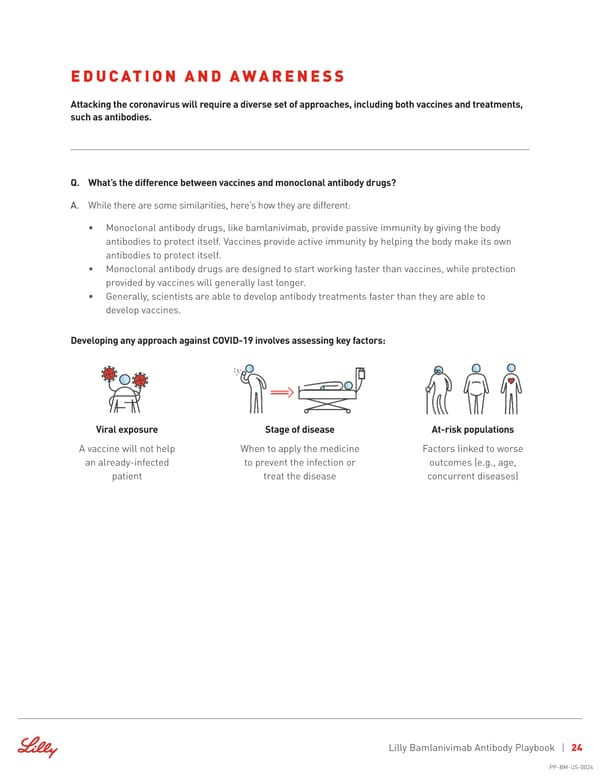EDUCATION AND AWARENESS Attacking the coronavirus will require a diverse set of approaches, including both vaccines and treatments, such as antibodies. Q. What’s the difference between vaccines and monoclonal antibody drugs? A. While there are some similarities, here’s how they are different: • Monoclonal antibody drugs, like bamlanivimab, provide passive immunity by giving the body antibodies to protect itself. Vaccines provide active immunity by helping the body make its own antibodies to protect itself. • Monoclonal antibody drugs are designed to start working faster than vaccines, while protection provided by vaccines will generally last longer. • Generally, scientists are able to develop antibody treatments faster than they are able to develop vaccines. Developing any approach against COVID-19 involves assessing key factors: Viral exposure Stage of disease At-risk populations A vaccine will not help When to apply the medicine Factors linked to worse an already-infected to prevent the infection or outcomes (e.g., age, patient treat the disease concurrent diseases) Lilly Bamlanivimab Antibody Playbook | 24 PP-BM-US-0024
 Antibody Playbook Page 23 Page 25
Antibody Playbook Page 23 Page 25